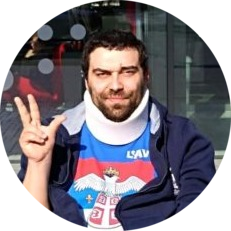11.05.2020
Chordomas and chondrosarcomas are difficult to manage using conventional cancer treatment methods. Areas of the body frequently affected by this type of cancer include the spine, skull, pelvis, hip, and shoulder.
Effective treatment of these tumours using surgical resection is not usually achievable due to neurovascular involvement. As a result, recurrence of the tumour when surgery is used in isolation poses a significant risk for both chordomas and chondrosarcomas. Due to the low risk of metastasis and relative chemoresistance, the use of definitive radiotherapy or perioperative radiotherapy is very important in maintaining local control.
Previous research has shown proton therapy to be beneficial in treating these types of tumours. Using protons, health professionals are able to treat chordoma and chondrosarcoma with higher doses of radiation due to the increased accuracy of proton therapy.
A 2019 study published in the journal ‘Cancer’ entitled: The role of dose escalation and proton therapy in perioperative or definitive treatment of chondrosarcoma and chordoma has shown that proton therapy improves overall survival for those with these forms of cancer.
This study analysed a total of 863 patients with chondrosarcoma and 715 patients with chordoma treated with proton or conventional radiation therapy. The primary endpoint of overall survival (OS) was evaluated, and clinical features, including age, sex, grade, clinical stage, and Charlson‐Deyo comorbidity index, were compared.
 |
Read: Filip’s Chordoma Cancer Story |
This study found that for chondrosarcoma, a high radiation dose of proton therapy was associated with improved OS at 5 years.
For chordoma, proton therapy was associated with improved OS at 5 years and a high dose for chordoma was significant for improved OS.
The authors concluded that in the largest retrospective series to date, dose escalation and proton radiotherapy were associated with improved overall survival in patients with chondrosarcoma and chordoma. Evidence continues to accumulate in support of improved outcomes with high‐dose proton therapy in the treatment of chordoma and chondrosarcoma with acceptable toxicity.
If you or a loved one are suffering with chordoma or chondrosarcoma, the Prague Proton Therapy Center oncologists are available for consultation.
Associated Resources:
DEGRO. Stellungnahme zur Strahlentherapie mit Protonen in Deutschland Juni 2015.
T. F. DeLaney, N. J. Liebsch, F. X. Pedlow et al., “Phase II study of high-dose photon/proton radiotherapy in the management of spine sarcomas,” International Journal of Radiation Oncology∗Biology∗Physics, vol. 74, no. 3, pp. 732–739, 2009.
E. B. Holliday, H. S. Mitra, J. S. Somerson et al., “Postoperative proton therapy for chordomas and chondrosarcomas of the spine: adjuvant versus salvage radiation therapy,” Spine, vol. 40, no. 8, pp. 544–549, 2015.
B. Rombi, T.F. DeLaney, S.M. MacDonald, et al. “Proton radiotherapy for pediatric Ewing’s sarcoma: initial clinical outcomes” Int J Radiat Oncol Biol Phys, 82 (2012), pp. 1142-1148
